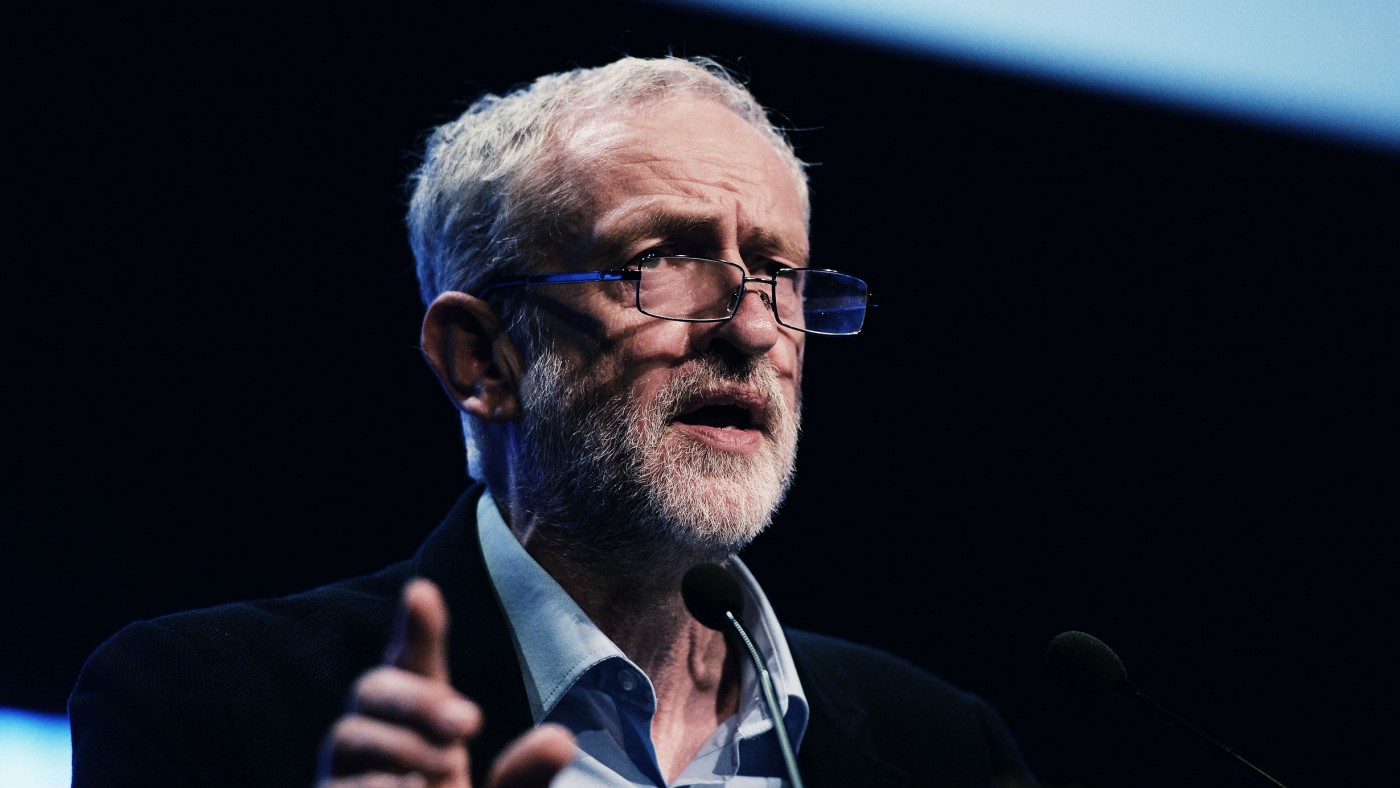Even the biggest critics of Labour leader Jeremy Corbyn can surely see that no matter what he did at the Cenotaph in London on Sunday it would never have been enough to satisfy his opponents. If he had dressed up as Winston Churchill, and announced that next week he is joining the Royal Marines, he would have faced criticism for smoking a cigar in public and for snubbing the Parachute Regiment.
As it is, he quite properly wore a red poppy and sang the national anthem alongside Britain’s other party leaders paying their respects to the country’s war dead. That appearance has been overshadowed by the intervention of a senior military man – General Sir Nicholas Houghton – who told Andrew Marr on the BBC that he would be worried if Corbyn’s pacifist views were put into pratice in power. Corbyn is undermining the notion of deterrence.
Chaos ensued. Labour’s shadow defence secretary Maria Eagle backed Houghton and said he was right to express concern. Corbyn refuses to back Labour party policy, declaring that even if Trident is renewed he would never press the button as Prime Minister, which infuriates Labour moderates.
This is, in one sense, academic. Short of the English electorate going mad, Jeremy Corbyn will never be Prime Minister. In the general election in May, the quiet voters of England made a decisive decision when faced with the choice of David Cameron or Ed Miliband, a moderate left-winger who looks now like a historical giant of the Labour movement when compared to Corbyn. If Corbyn goes into a general election as leader, Labour will be smashed to bits in England. He is a naive pacifist, a threat to national security and economically from the dark ages.
But today he is right to have hit back at Houghton. Generals should stay out of politics, completely, he said. That is spot on. Not only do military commanders tend to be poor at politics – just as businessmen tend to do badly when they switch, because Westminster operates by different rules from the boardroom. Generals shouldn’t get involved in political controversy, because it is improper. If they do overreach themeslves, it means their military judgement will be doubted by a portion of the public in a future crisis, when sceptics will see them as partial or even downright partisan.
It is simple. The job of Generals and Admirals is to lead the armed forces, as directed by ministers. Defence policy is decided by the politicians we elect. Corbyn’s policies are dangerous, but it is David Cameron’s job to say so. It is the job of Labour MPs to say so. It is not a job for a General.


